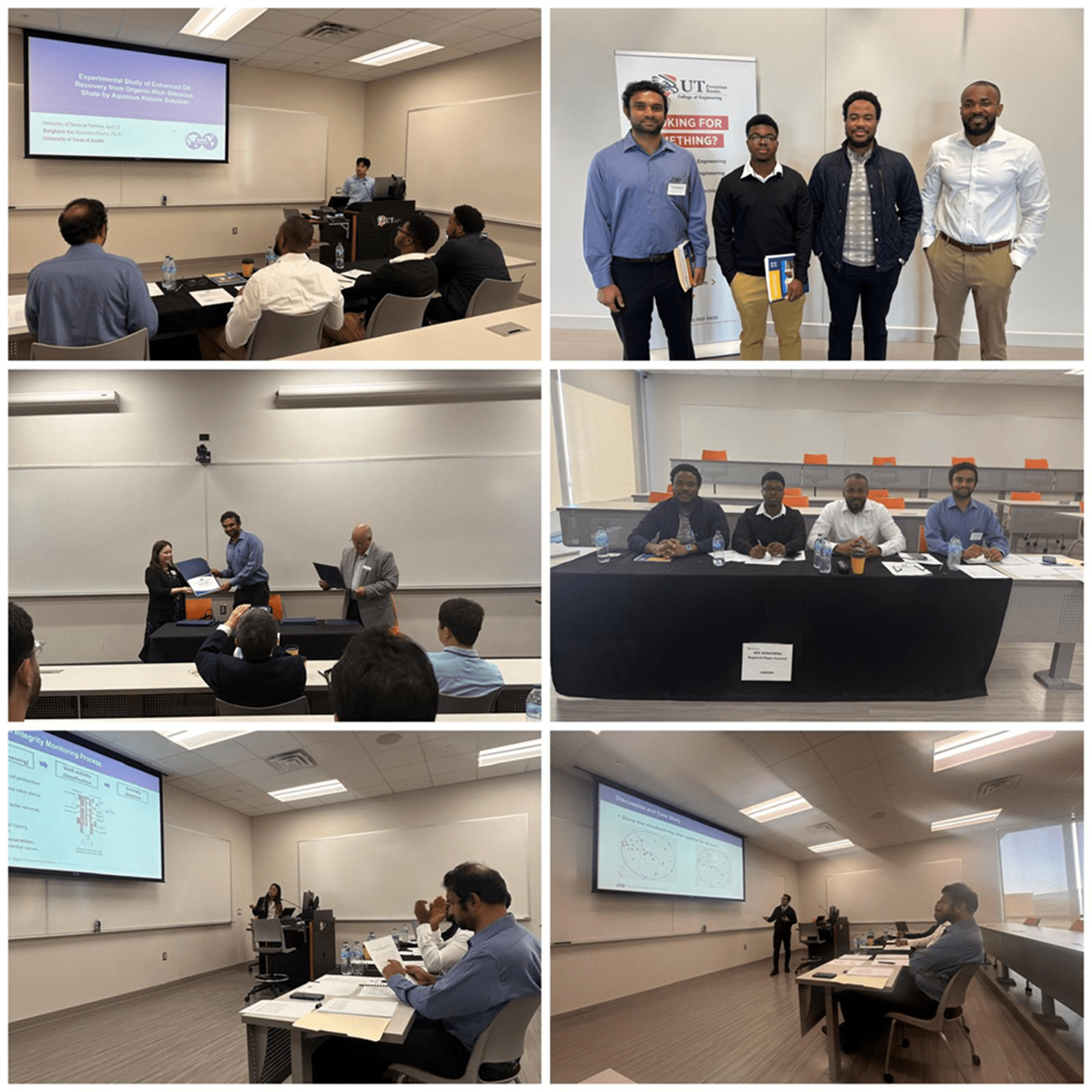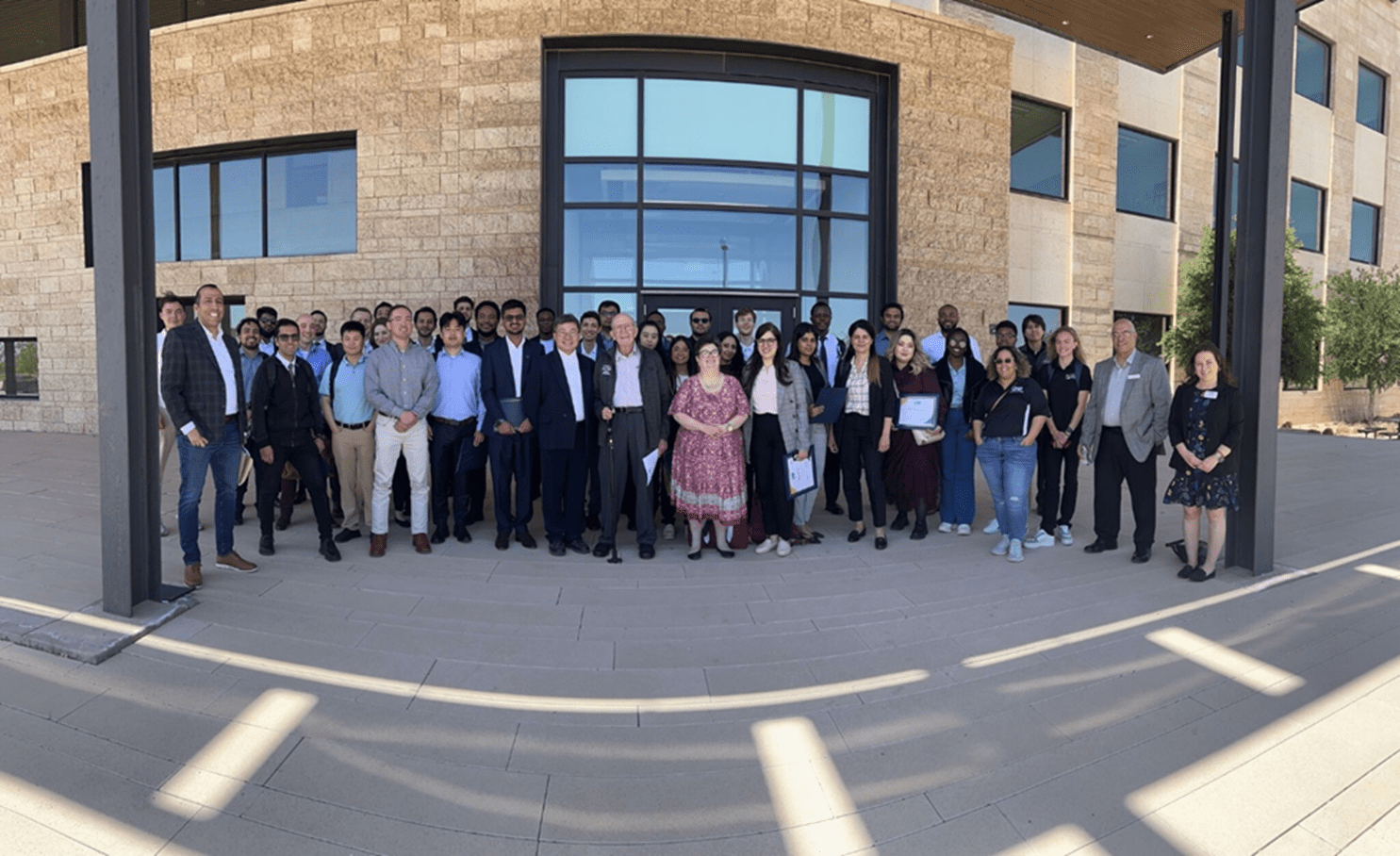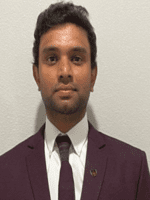I had the opportunity to serve as a judge for the Society of Petroleum Engineers (SPE) 2025 Gulf Coast North America (GCNA) and Southwestern North America (SWNA) Regional Student Paper Contest, held on April 12, 2025, at the Engineering Building of the University of Texas Permian Basin (Midland Campus).
The contest featured three divisions: Undergraduate, Master’s, and Ph.D. I was honored to serve as a judge for the Master’s Division. The event started at 7:30 a.m., and I completed the check-in procedures at the venue. Ms. Erin O’Sullivan, representing SPE, was onsite to coordinate the Master’s Division. Other judges included Mr. David Nnamdi, Mr. Prosper Nekekpemi, and Mr. Chiedozie Nwachuku. The session was moderated by Ms. Daisy Portillo, who ensured a smooth flow of the presentations.
Seven students competed in the Master’s Division, representing Texas Tech University, the University of Texas at Austin, Texas A&M University, and the University of Houston. Each student presented significant research topics. Mr. Bassel Eissa from Texas Tech University presented his work on a detailed risk matrix designed to evaluate the integrity of legacy wells in West Texas. Ms. Kulpitcha Sudyodprasert from the University of Texas at Austin delivered a presentation on automated production activity and abnormality detection for well integrity monitoring in high-pressure, high-temperature (HPHT) oil production wells, offering insights into the application of machine learning techniques to real-time operational data.

Mr. Majd Awarkeh from Texas A&M University discussed the concept of a barite precipitant geo-barrier generated within rock formations to prevent CO₂ leakage, a promising technique for engineered carbon storage sites. Mr. Vincent Nwala from the University of Houston spoke on the criteria for implementing hydrogen fuel cell electric vehicles, analyzing the energy source dependencies and usage implications. Mr. Sunghyon Ko from the University of Texas at Austin shared an experimental study on enhanced oil recovery from organic-rich siliceous shale utilizing aqueous ketone solutions, focusing on wettability alteration for improved oil recovery. Ms. Lalitha Paturi from the University of Houston presented her research on measuring and analyzing viscosity in high-stability oils and lubricants over a wide temperature range. Finally, Mr. Oluwasanmi Talabi from Texas A&M University presented a workflow using machine learning techniques to predict CO₂ plume growth during geological carbon storage, an essential aspect for ensuring long-term storage security.
Following the presentations, the judges, including me, evaluated each participant based on their understanding of the subject matter, originality, research approach, literature review, presentation quality, and the significance of their findings. Our compiled scores were submitted to Ms. Erin O’Sullivan for final tabulation.
Based on the results, Mr. Sunghyon Ko from the University of Texas at Austin was awarded first prize in the Master’s Division. Mr. Majd Awarkeh from Texas A&M University received second prize, and Mr. Oluwasanmi Talabi, also from Texas A&M University, secured third prize. First-place winners from each division will advance to represent the region at the international competition during the Annual Technical Conference and Exhibition (ATCE).
The award ceremony was held in the conference room, where all presenters, judges, and faculty members gathered. Dr. Ahmed Kamel and Ms. Erin O’Sullivan presented certificates to recognize the outstanding efforts of both the students and judges. The event concluded successfully at 2:00 p.m. on April 12, 2025.
Participating as a judge in this contest was a truly rewarding experience. I was highly impressed by the caliber of research, innovation, and professionalism demonstrated by the students, and I am honored to have contributed to this important academic event.
Headline photo courtesy of Daisy Portillo.
Purushothkumar Santhana Mahalingam is an accomplished petroleum engineer with extensive expertise in hydraulic fracturing, well stimulation, and petroleum engineering management. He began his career in the oil and gas industry as a Field Engineer focused on hydraulic fracturing. Subsequently, he transitioned to Procurement Engineer, responsible for procuring essential materials such as proppants, acids, and well stimulation chemicals for fracturing operations and managing district inventory. His responsibilities also include vendor negotiations and writing technical proposals.
Mahalingam has been a member of the Society of Petroleum Engineers since 2011. He has actively participated in key industry conferences, serving as a technical reviewer for URTeC 2025, and is slated to serve as a session chair at the same conference. He was also a speaker for the SPE North American Student Symposium in February 2025 and a Judge in the 2025 North America Regional Petrobowl Competition.
He earned a Master’s in Natural Gas Engineering from Texas A&M University—Kingsville and a Bachelor's Degree in Petrochemical Technology from Anna University, Tiruchirappalli. To further enhance his credentials, he completed a Postgraduate program in Data Science and Business Analytics from the University of Texas at Austin. He gained proficiency in industry-relevant software such as FRACPRO, Meyers, Aspen HYSYS, and PROMAX.






